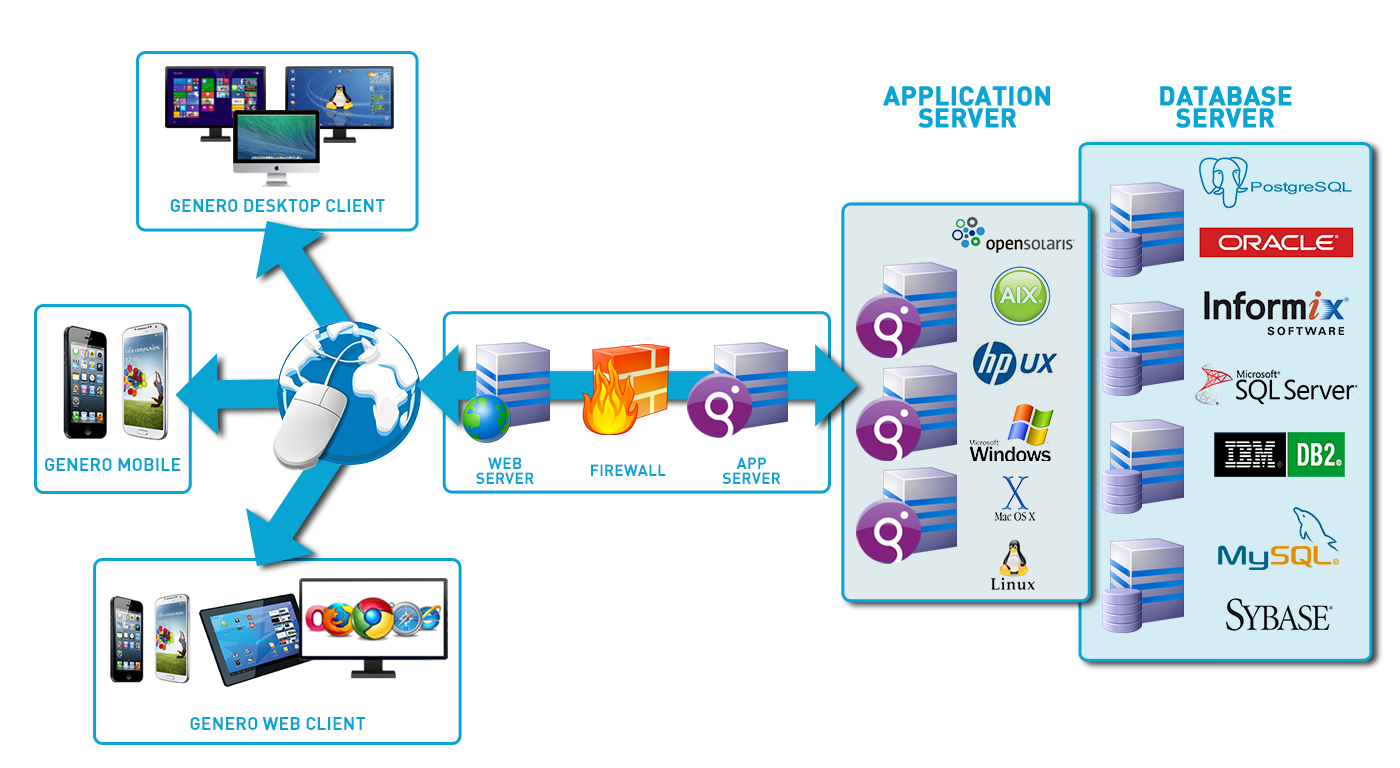No-Code Solutions for Open System Data Source Production: Build Without Coding Skills
Wiki Article
Discovering the Benefits of Scalable Databases That Call For No Coding Skills for Efficient Information Management Solutions
The emergence of scalable data sources that eliminate the necessity for coding abilities offers a transformative opportunity for companies seeking reliable data monitoring options. By enabling non-technical individuals to harness the power of information via user-friendly user interfaces, these systems improve accessibility and foster cooperation across varied groups. Furthermore, their cost-effectiveness and flexibility to progressing business demands can considerably simplify operational procedures. As we take into consideration the ramifications of such innovations, it comes to be vital to examine exactly how they can improve the landscape of information management and drive sustainable development in a competitive atmosphere.Improved Availability for Customers
Boosted accessibility for users is a critical facet of scalable data sources, making certain that information monitoring systems are instinctive and straightforward. In an era where data-driven decisions are critical, availability allows a larger series of customers, consisting of those without comprehensive technical knowledge, to involve with database systems successfully. This democratization of information accessibility helps with improved collaboration throughout divisions, equipping employees to make and draw out insights educated choices.User-friendly interfaces, such as drag-and-drop features and aesthetic data depiction, streamline complex information communications. These improvements decrease the learning contour related to traditional data source administration, making it possible for individuals to focus on leveraging information as opposed to grappling with technological complexities. Moreover, scalable data sources frequently include real-time analytics and adjustable dashboards, supplying users with instant insights customized to their specific requirements.

Cost-Effectiveness and Source Cost Savings
Effective information administration not just pivots on ease of access but additionally on cost-effectiveness and source savings. Scalable data sources developed for users without any coding skills dramatically decrease economic problems generally connected with traditional database administration systems. By eliminating the requirement for specialized programming expertise, companies can allocate their resources extra effectively, concentrating funds on core company tasks as opposed to substantial training or working with skilled employees.In addition, these data sources frequently make use of cloud-based services, which better minimize expenses associated with equipment and upkeep. Organizations can scale their database services according to their requirements, staying clear of the expenses incurred from over-provisioning sources. This adaptability implies services can adjust to transforming demands without incurring unnecessary expenses, bring about significant long-term cost savings.
Furthermore, straightforward user interfaces streamline data entry and administration procedures, lowering the moment invested in management tasks. This effectiveness converts right into labor price financial savings, permitting groups to concentrate on strategic initiatives rather than regular maintenance. Generally, embracing scalable databases that need no coding skills promotes a much more economical technique to information administration, enabling companies to maximize their resources while maintaining high levels of operational performance.
Improved Cooperation Throughout Teams

In addition, scalable databases assist in smooth interaction among staff member. With straightforward interfaces that need no coding abilities, staff members can easily produce, change, and share reports or dashboards tailored to their certain demands. This democratization of information empowers non-technical users to contribute insights, boosting the joint environment.
Additionally, these data sources support concurrent accessibility, allowing multiple users to service the exact same dataset concurrently. This attribute boosts performance, as groups can take part in joint information evaluation without the threat of variation control concerns. The capacity to leave remarks or notes straight within the data source additionally promotes dialogue and clarifies data analyses.
Streamlined Data Management Processes
In today's data-driven environment, companies identify the need of structured information administration processes to maximize performance and precision. By leveraging scalable data sources that need no coding skills, services can simplify their data handling and lower the intricacies commonly linked with standard database systems. This ease of access empowers non-technical customers to involve directly with information, facilitating quicker decision-making and decreasing reliance on specialized IT employees.Streamlined data monitoring processes enhance operations by automating routine tasks such as information entry, recognition, and coverage. Automated data integration guarantees that information from different sources is aggregated effortlessly, getting rid of silos and cultivating a merged view of essential service metrics (no-code). Additionally, user-friendly user a fantastic read interfaces allow workers to manipulate information easily, enabling them to create insights that drive critical initiatives without the demand for comprehensive training.
This effectiveness not just accelerates functional processes however likewise lessens the potential for human mistake, guaranteeing that information remains precise and trusted. Ultimately, streamlined data management procedures via scalable databases result in enhanced productivity, allowing organizations to concentrate on core activities while ensuring that their information monitoring methods are effective and efficient.
Scalability for Growing Businesses

For expanding ventures, the ability to scale up or down is essential. A scalable data source can manage an increase of information produced from brand-new consumers, items, or solutions, making sure that company operations continue to be nonstop. These data sources offer the capability to handle peak loads successfully, which is necessary during durations of rapid development or seasonal spikes.
Furthermore, many scalable data source services home are made with easy to use interfaces that need no coding skills, equipping non-technical staff to handle information efficiently (no-code). This democratization of information administration permits organizations to allot resources purposefully and decrease dependence on specialized IT personnel
Inevitably, adopting a scalable database not just enhances operational performance but additionally fosters an atmosphere where organizations can develop and introduce without the constraints of conventional data source systems. This adaptability settings companies for lasting success in today's competitive landscape.
Final Thought
To conclude, scalable databases that call for no coding abilities offer considerable benefits for efficient data administration. These systems boost ease of access for non-technical individuals, lower functional costs, and promote partnership across groups. By simplifying data management processes and providing scalability for expanding organizations, such remedies enable organizations to adapt to changing demands efficiently. Eventually, the fostering of these easy to use data sources promotes innovation and positions services for long-term success in a vibrant atmosphere.Improved ease of access for individuals is an essential facet of scalable data sources, ensuring that data administration systems are straightforward and user-friendly.Straightforward user interfaces, such as aesthetic information and drag-and-drop features depiction, streamline complex information communications. In general, adopting scalable databases that need no coding skills cultivates a much this website more affordable strategy to information management, making it possible for organizations to optimize their resources while maintaining high degrees of operational effectiveness.
By leveraging scalable databases that call for no coding skills, businesses can streamline their information handling and lower the complexities commonly linked with conventional data source systems - no-code.Streamlined information management procedures boost process by automating regular tasks such as information entrance, validation, and coverage
Report this wiki page